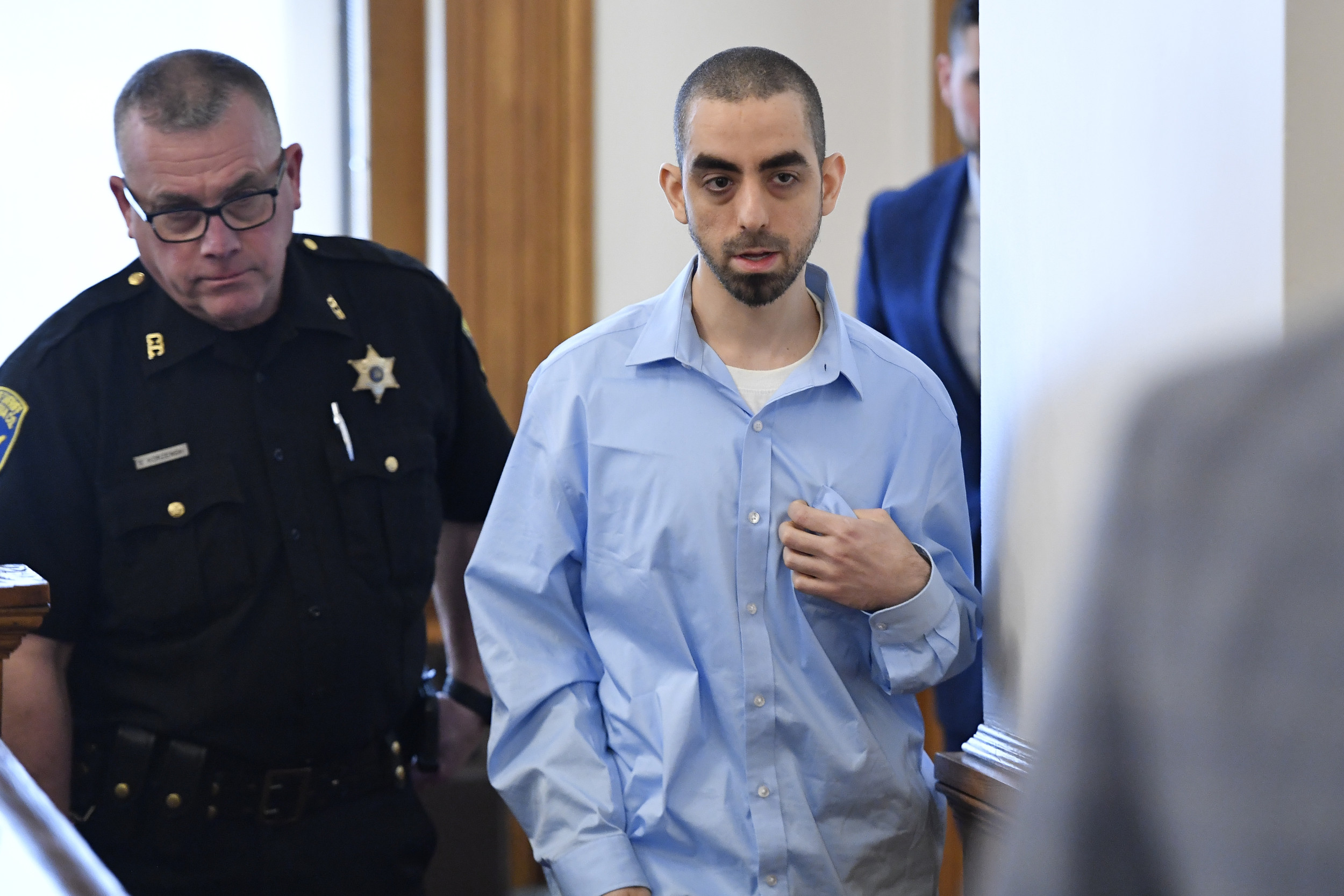World
Salman Rushdie Attacker Says ‘Free Palestine’ as He Enters Court

The Trial of Hadi Matar: A High-Stakes Case with Global Implications
Introduction: A Trial That Resonates Globally
The trial of Hadi Matar, the man accused of attempting to kill renowned author Salman Rushdie, has captivated global attention due to its profound implications for free speech, political tensions, and the lingering shadows of decades-old ideological conflicts. On Monday, as Matar entered a New York court, he was heard uttering "Free Palestine," a phrase that has sparked speculation about his motivations. The 27-year-old from Fairview, New Jersey, has pleaded not guilty to charges of attempted murder and assault. Despite the absence of his attorney, Nathaniel Barone, who was hospitalized, Judge David Foley pressed on with the trial, directing an associate of Barone to deliver the opening statement. With a jury already selected, the case is moving forward, raising questions about justice, ideology, and the enduring debate over freedom of expression.
The Attack and Its Aftermath: A Chilling Act of Violence
On August 12, 2022, Salman Rushdie, the celebrated author of Midnight’s Children, Shame, and Victory City, was stabbed over a dozen times during a public lecture at the Chautauqua Institution in western New York. The attack occurred just moments after Rushdie took the stage, leaving him with life-threatening injuries, including wounds to his neck, chest, hand, and eye. Henry Reese, the event’s moderator and co-founder of City of Asylum in Pittsburgh, was also injured while attempting to intervene. Audience members managed to restrain Matar until police arrived, preventing further harm. The attack sent shockwaves through the literary world and beyond, reigniting global discussions about the safety of writers and the limits of free speech.
The Context: A Decades-Long Fatwa and Its Echoes
Salman Rushdie has lived under the shadow of a death sentence since 1989, when Iran’s Supreme Leader Ayatollah Ruhollah Khomeini issued a fatwa condemning Rushdie’s novel The Satanic Verses as blasphemous. Although Iran later stated it would not enforce the decree, the fatwa has cast a long shadow over Rushdie’s life, forcing him into hiding for years. The attack on Rushdie in 2022 appears to be the latest chapter in this saga. Federal prosecutors allege that Matar was inspired by Lebanon-based Hezbollah and its leader, Hassan Nasrallah, who had endorsed the fatwa. Matar’s actions, they argue, were not those of a lone individual but part of a broader ideological movement.
The Trial: A Legal and Emotional Battlefield
As the trial unfolds, the courtroom has become a battleground for competing narratives. District Attorney Jason Schmidt, in his opening statement, painted a vivid and disturbing picture of the attack, describing how Matar "forcefully and efficiently" stabbed Rushdie "over and over and over again." Schmidt emphasized the brutality of the attack, arguing that Matar’s actions were deliberate and premeditated. Meanwhile, Assistant Public Defender Lynn Schaffer cautioned the jury that the elements of a crime require more than just the acknowledgment that "something really bad happened." She emphasized that the prosecution must prove specific intent and motive beyond a reasonable doubt. The trial is expected to last between a week and 10 days, with testimony from witnesses who were present at the lecture.
The Broader Implications: Free Speech and the Price of Controversy
The attack on Salman Rushdie has reignited global debates about free speech, censorship, and the risks faced by writers who challenge ideological or religious orthodoxy. Rushdie, who has long been an outspoken advocate for freedom of expression, has remained defiant even in the face of this latest threat. In interviews following the attack, he stated unequivocally that he would not be silenced by fear. His memoir, Knife: Meditations After an Attempted Murder, published in 2023, chronicles his experiences and reflections on survival, creativity, and the enduring power of words. The trial has also raised questions about the intersection of politics and violence, with Matar’s "Free Palestine" statement adding another layer of complexity to the case.
What Lies Ahead: Justice, Accountability, and the Legacy of a Writer
As the trial continues, the world watches with bated breath, not only for the outcome but for what it may signify about the state of free speech and the consequences of extremism. Salman Rushdie, who is expected to testify during the trial, will face his alleged attacker in a moment that promises to be both deeply personal and profoundly symbolic. If convicted, Hadi Matar faces significant prison time, and a separate federal case in U.S. District Court in Buffalo could result in additional charges related to terrorism. Meanwhile, Rushdie continues to advocate for writers at risk, reinforcing his belief in the power of literature to challenge, provoke, and inspire. The trial of Hadi Matar is more than just a legal proceeding; it is a reminder of the enduring struggle between creativity and control, freedom and fear.











